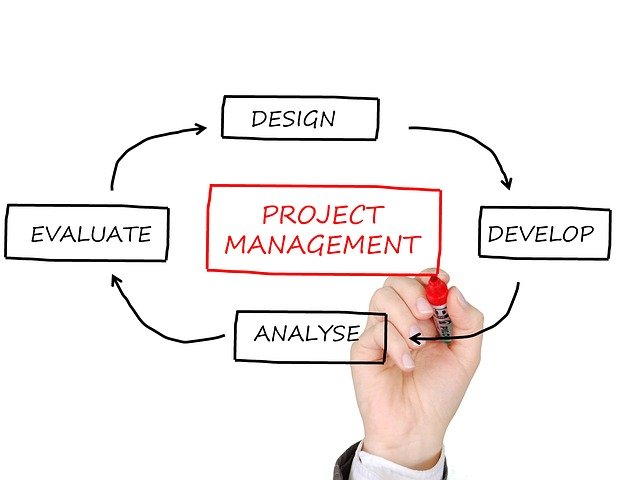
Online project management tools are great. You can start discussions, keep up to date with task progress through notes and comments, chat via instant messaging to your colleagues, see who is online, ask questions, share documents, receive email alerts when things change… The list goes on and on. Add to that the need to keep on top of your emails, and any other social media tools that you use that also send you alerts whenever one of your contacts checks in at their favourite restaurant – well, you can see how people can suffer from information overload.
These days there are so many sources of information available to us, and we feel that we have to be involved with them all, in case we miss out on something. We need to feel connected at all times to the outside world and what is happening on our projects. However, you can tame the madness. Here are some tips for managing all that information without going insane.
Don’t Multi-Task
Focus on one thing at a time. Multi-tasking hasn’t been shown to work anyway, and you will probably know from your own experience that it is difficult to keep track of what is happening with your friends on Facebook while simultaneously trying to focus on updating your project dashboard with the latest budget figures. Stick to the task in hand. This takes willpower, but you can do it! One useful technique is to break the day into chunks of time, say 30 minutes, and focus on a task for that long. Then you can reward yourself with a treat, like checking your social media feeds for news.
Take a Break
When you come to the end of a task, have a break. You can schedule breaks regularly throughout the day, or take them when you need them. It is best to do something completely different during a break, such as going to the gym or out for a walk. If you can’t spare that much time, at least get up from your desk and go and get a drink, or talk to a colleague (as long as you check first that they don’t mind being interrupted).
Prioritize Your Contacts
Some people are so important that you will drop everything for them. Your priority list probably includes a mix of work people (like your boss or your project sponsor) and home people (like your babysitter or your kid’s teacher). Think through who is worth stopping everything for, and who can wait. Then when someone who is not on the priority list rings you, you won’t feel guilty about ignoring their call and letting it go to voicemail. You can set up your phone to have a different ringtone or show a different picture for your priority contacts so you will always know that it is them.
Get Some Sleep
It is always easier to focus if you have had some sleep. Do all the stuff that the doctors have been telling us for years: avoid being too over-stimulated at bedtime, switch your phone’s volume to silent and don’t leave it by the bed to avoid being woken up in the night and to minimize the temptation to check your messages, don’t eat or drink too much or too late. Find a night-time routine that works for you. This could include a milky drink, winding down with a good book or the radio, and a bath. Whatever means that you will get a good night’s sleep so you can better face the challenges of the following day.
Manage your Interruptions
“Could you just check this?” “Can you just pop into this meeting for a moment?” “Have you got just 5 minutes?” Project managers hear things like this all the time. Be wary of any request that includes “just”! It rarely means “just 5 minutes” and you’ll end up getting sucked into the interruption.
Don’t be afraid to say no. It might not be a topic that you are interested in, or that you can spare any time on right now. If you could help out later, offer to do that. But don’t feel obliged to drop everything and help. After all, they came to you asking for a favor.
This technique might seem a bit mean-spirited but it will help you focus on what you are doing and stop you feeling overloaded at work. You need to show that you value your own time and then others will value it as well.
Keep on Top of Your Emails
You probably get dozens of emails per day, maybe hundreds. Set up rules for your emails, moving them into folders automatically. Don’t get into the habit of cc’ing your colleagues unless you really have to, and ask them not to cc you unless it’s essential. Unsubscribe from newsletters and mailing lists – chances are that you don’t have the time to read them anyway.
One of the best ways to stop feeling as if email is taking over your life is to turn off the alerts that pop up when you get a new message. Stop your phone from buzzing or beeping when you receive a new email, and change your settings on your email client so that you don’t get a pop up box on the screen. These are a huge distraction and make you feel constantly interrupted.
Instead, check your emails several times a day, sorting through the messages quickly. Delete anything where you have just been copied in and don’t need to take any action. Color code them, categorize them or add flags – whatever works for you to get them in some sort of priority order. Then deal with the most important ones first. Even better, try to move the discussion to your online project management software and cut out a huge chunk of your email traffic completely.
Ditch the detail. You don’t have to read every status update from a colleague or every blog entry on the company intranet. Trust your project team to make you aware of anything really important. Switch off automatic email alerts so that your inbox doesn’t get cluttered with updates that you will never have time to check. And ditch the guilt too! As a project manager, you need to know what is going on in the project, but you don’t have to know every tiny element of detail. Leave that to your colleagues on the team – they are all responsible for their own tasks and they are experts in their own areas. Spend your time focusing on areas where you can make a difference.
It isn’t easy to get out of the information overload habit, but a few small changes to your daily routine can soon have you feeling better organized and more able to cope with all the project information coming your way.



